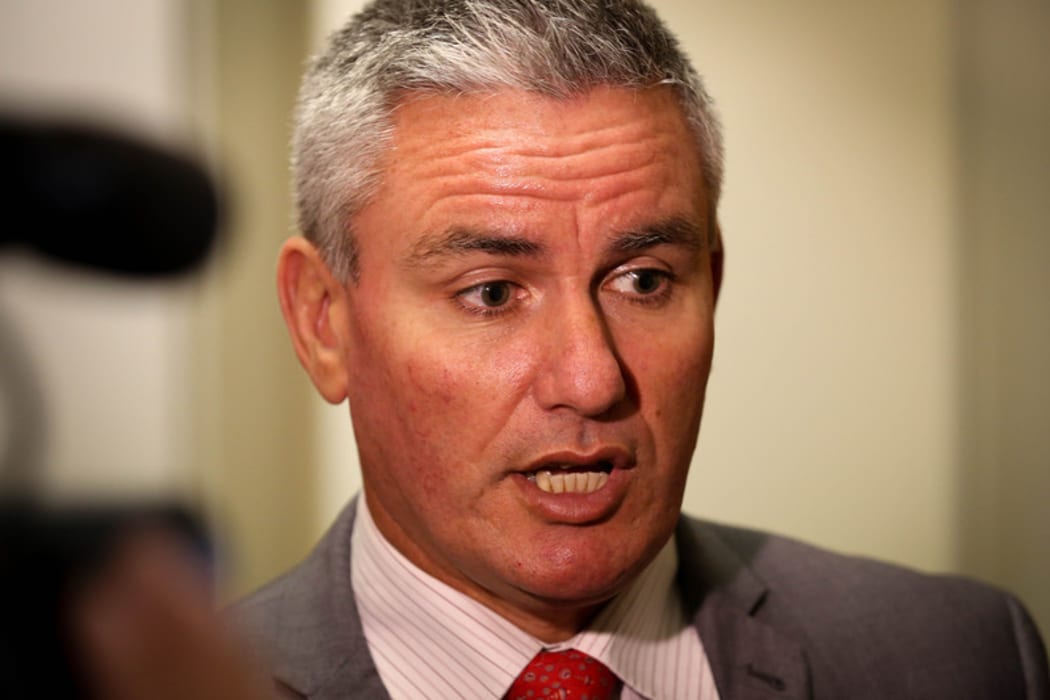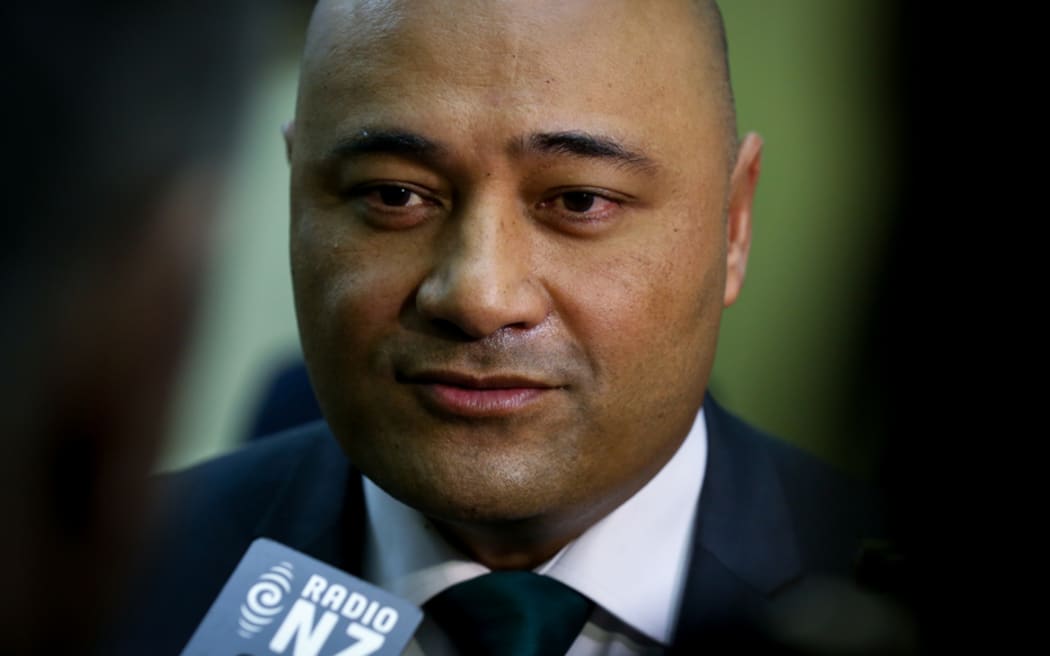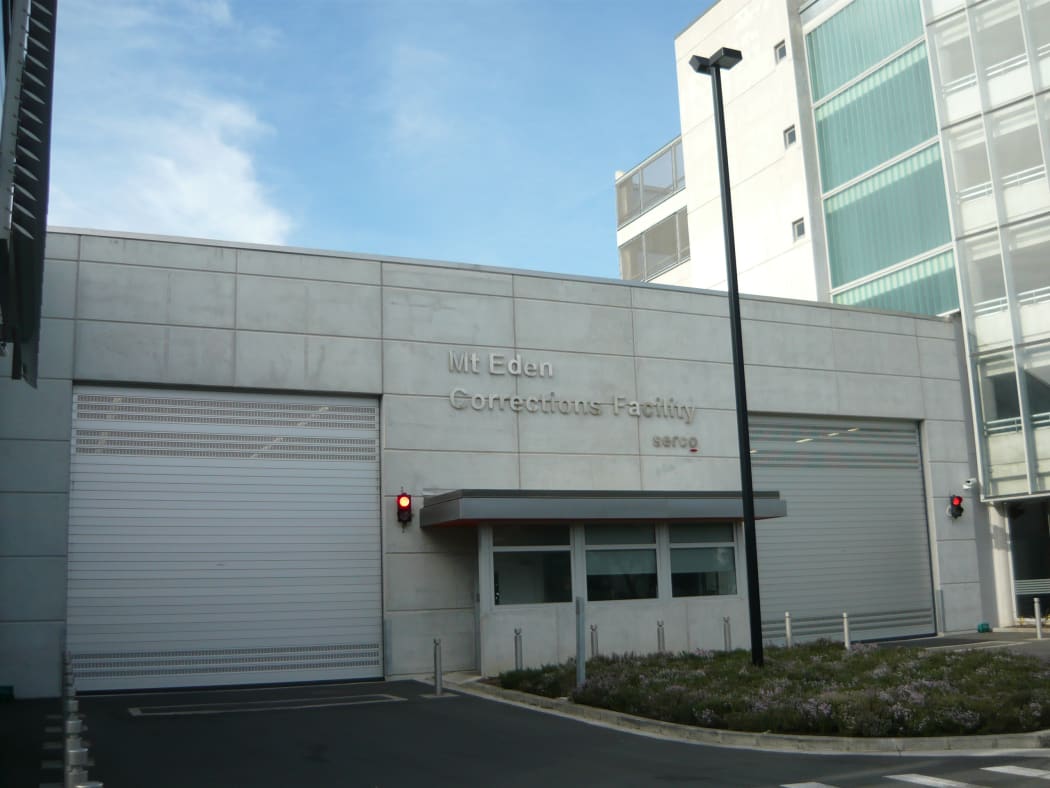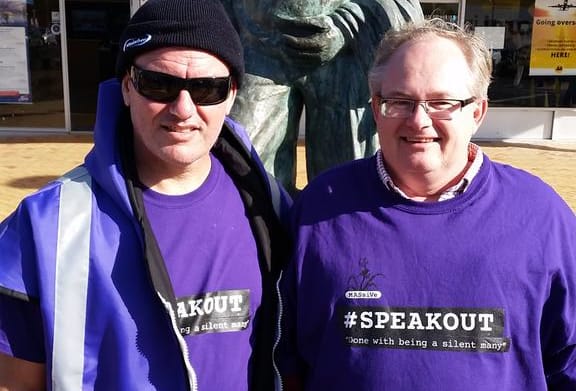In the first in our new Newsmaker series, we interview a person who has dominated the news headlines. This week: Te Tai Tokerau MP Kelvin Davis.
Two years ago, Mr Davis was close to giving up politics.
He had been elected to Parliament as a list MP in 2008 but then lost his spot in 2011.
But, rather than quit politics in disappointment, he stood again in 2014 and defeated Mana leader Hone Harawira to win Te Tai Tokerau back for Labour.
In the past two weeks, in particular, his decision to have another go at politics has been vindicated. Mr Davis has hogged the headlines, exposing the violence occurring at privately run Mt Eden Prison and challenging the Government's handling of Corrections.
He talked to Radio New Zealand political editor Brent Edwards about the controversy and what it means to him.

This week's newsmaker: Te Tai Tokerau MP Kelvin Davis Photo: RNZ / Alexander Robertson
In terms of this issue with Serco and the problems at Mt Eden Prison, it's certainly given you profile. Do you think it's the most profile you've had since being an MP?
Oh absolutely. All MPs beaver away doing their things but it's really great to be able to latch on a topic which has resonance across the country. It certainly does raise your profile when you've got questions in the House everyday and you're going hard at a minister.
How hard was it for you to work to get this? Did it take a lot of work for you or have you had people with concerns just raising it with you?
Well I guess really it was the snap debate we had last week that really set people off. Obviously the messages I gave resonated with people and people could relate to the issues of violence that I raised - and so their responses started pouring in.
A lot of people inside prison at the moment got onto their families and said 'Yeah, that guy's telling the truth and you need to tell him my story and what's actually going on'... I'm just getting a lot of feedback like that. People are saying, at last somebody's telling the truth and telling it how it is.
Obviously a lot of criticism of [Corrections Minister Peseta Sam Lotu-Iiga]. You've called for him to resign. Does that get personal?
Yeah, that's the horrible part about politics. He's the minister in charge and he needs to be held to account for the way his ministry is or is not performing. You know on a personal level I really like Sam but, you know, in politics he's got to deliver or else he should go.

Corrections Minister Peseta Sam Lotu-Iiga Photo: RNZ / Alexander Robertson
Corrections, generally I guess as a portfolio, [is] probably seen as one of perhaps the more negative ones, the more difficult ones for people. How did you feel when you got that portfolio? Did your raise your hands in horror or was it something you were looking forward to?
No, I think there's a real opportunity to turn something that is perceived as negative into a positive. If you can make real and meaningful change at the deepest levels of Corrections I think that it's going to be better for all of New Zealand.
So I was really - I've really enjoyed the Corrections portfolio. I mean, I've got a number of other portfolios but this is the one I really like the most.
I think that it's where I can make a big difference in the lives of many New Zealanders and I'm really enjoying what I'm doing. It's certainly an eye opener.
I didn't have experience in Corrections at all before so, you know, getting out into prisons and talking to inmates, talking to guards, talking to people who run prisons, talking to probation people, it is all very interesting. And you then have to think about ways you can convert all that information into a positive for the country.

Corrections has taken over the management of Mt Eden Prison from Serco while investigations into several allegations are completed. Photo: RNZ
The statistics tell us there is a disproportionate share of Māori in prison. Does that drive you in particular.
Yeah, absolutely. That's why I was in Education, to make a difference for Māori, and when you make a difference for Māori, well then everyone benefits.
It's the same in Corrections. If we can actually reduce the number of Māori in prison then everybody's going to benefit. It's going to be a win-win for the country.
You know, I just hate seeing so many Māori in prison. I mean, we're talking about my relations, you know we're talking about cousins I have, nephews I have. They're in prison and, I mean, as well as trying to work on the outside to make sure they don't get in there in the first place, you've got to make sure that - when they're in there - that they're given the best conditions to enable them to rehabilitate and not recidivise(sic).
If we can actually reduce the number of Māori in prison then everybody's going to benefit. It's going to be a win-win for the country.
Do you think there's plenty of room for improvement in terms of what Corrections does around rehabilitation?
Absolutely. There's any number of things that can done just to support people. I mean certainly if you go into Mt Eden Correctional Facility and you get your lights punched out, well that's actually not going to really help your rehabilitation.
To an extent, if you're an angry and violent person as it is when you go in there, this is going to make you angry and more violent. If you're not angry and violent, I wouldn't be surprised if you came out as an angry and violent person.
So it's really important we stop this sort of behaviour. I'm not saying it's an easy task but, you know, you're either up for it or you're not.
So would you like to be the Minister of Corrections one day?
Absolutely. Like I say, it's a portfolio that really interests me. You know I can do a lot of good for my people up north. I mean about 50 percent of people in prison are Māori and of that 50 percent another 50 percent are Ngāpuhi, my own tribe.
So, you know, I've got to do this for my very own people and by doing that [it] will improve outcomes for all of New Zealand.

Kelvin Davis (left) with fellow marcher Eric Bolt during a two-week hikoi against sexual violence from Auckland to Cape Reinga. Photo: Twitter / @NgatiBird
Your own political career has been up and down. You were out of Parliament and I know, talking to your colleagues at the time you were out of Parliament, a number were very worried that you were going to walk away from politics. Did you ever consider that?
I wasn't going to come back. When I missed out in 2011, I just thought, you know, I've had my chance and it didn't work out. And Phil Goff said to me, 'Oh yeah you'll get over that emotion and then one day you'll start thinking about wanting to come back' and actually he was right.
I started to think about the things I wanted to achieve and hadn't achieved and would like to achieve. There came a time in 2013 where I actually had to make a decision to inform the party as to whether or not I was going to walk away for good or not.
That's when I decided 'Nah, if the opportunity comes up again I'll put up my hand again' and it all worked out and I am very glad it did... I've got a second life, a second opportunity to actually make a real difference
I've come in with a lot more of a narrow focus. You know the focus on sexual violence and domestic violence and now prison violence. If we don't eliminate and that is fairly, you know, idealistic as to wanting to eliminate violence but if we don't do it New Zealand suffers.
I'd never claim to be a natural politician. I have to work hard at it and I am better out in the electorate doing that sort of work and work behind the scenes rather than being a firebrand in the House.
Does what happened in the last couple of weeks, I guess political success, has that given you the confidence to know you're in the right place.
I've gained confidence. Like I say, getting to ask questions every day in the House, you know, you build your confidence and I am less nervous when I do have to stand up and ask questions.
I get to talk about this whole issue and, because I've got my head around it and what's gone on, I can stand with confidence and speak in the House. It's a lot more difficult when you're not quite sure of a topic and you've been asked to speak on it.
Some people are real natural speakers and natural politicians and they've got a real head for politics.
I'd never claim to be a natural politician. I have to work hard at it and I am better out in the electorate doing that sort of work and work behind the scenes rather than being a firebrand in the House. But, you know, because I know that's something I need to brush up on, you know, this has given me a real opportunity to do that.

